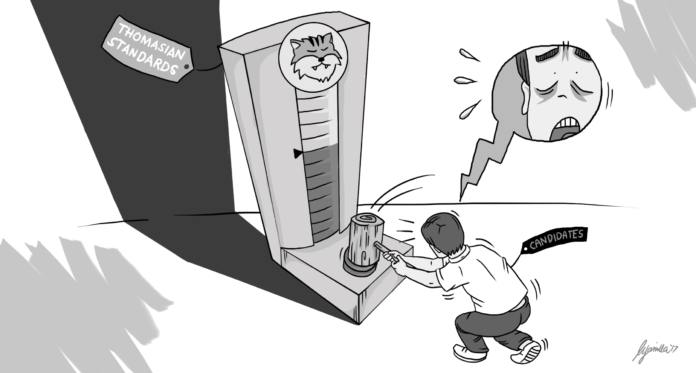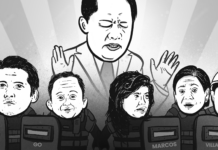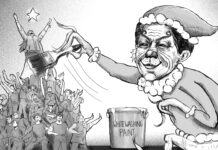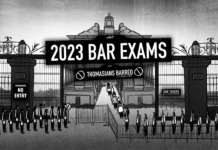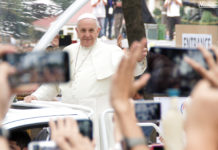THE RESULTS of the recent Central Student Council elections can be likened to a double-edged blade.
With majority of Thomasians voting to abstain, it appears that students have raised their standards for student leaders. In an unexpected turn of events, students rejected all candidates in four out of six positions in the Central Student Council (CSC) Executive Board, including the presidency. The remaining positions were won by independent candidates.
Moreover, Thomasians are not at all apathetic, contrary to popular notion. In fact, 66 percent of the University’s 43,762 students voted, a significantly higher turnout compared with other universities like UP, Ateneo and De La Salle.
The results also indicate that political parties are no longer influential, as parties and student leaders lack firm ideological roots. Political parties in UST have become more like personality development programs, not a group of like-minded students fighting for a cause.
Candidates sound and look like they’re in a beauty contest. They lack fire in their bellies. They lack inspiration and thus do not inspire others.
As a result, these so-called parties do not know their positions in the political spectrum, and do not exhibit a consistent stance on issues. Party leaders and their bets think they can win the votes of Thomasians by simply coming up with catchy slogans during their room-to-room and social media campaigns.
With the lack of honest-to-goodness political parties and candidates, the mandatory debates were a disaster to say the least; an utter embarrassment to the University’s intellectual reputation.
Debate videos posted on social media betrayed the candidates’ lack of even the minimum knowledge of current events and social awareness, leaving many students, faculty members and alumni cringing.
Vice-presidential bets Gabriela Sepulchre (Lakas Tomasino Coalition or LTC) and Renz Santiago (Lakas ng Diwang Tomasino) for instance drew flak for their controversial answers to a question on martial law.
LTC presidential candidate Steven Grecia’s support for a “justifiable” tuition hike because of his “love” for his teachers, and his careless dropping of the loaded term “neoliberalism,” probably cost him the election.
The victory of “abstain,” however, will deprive students of a voice in University decision-making, given the likelihood of unelected officers taking over the vacant seats in the CSC Executive Board.
This situation is unacceptable and cannot be repeated next year.
There are a lot of places for reforms to begin, but for starters, the UST Central Commission on Elections should impose more reasonable accreditation rules to allow more political parties, and therefore more candidates, to participate in student council elections.
Election officials should stop their annual practice of disqualifying parties and candidates on the slightest of technicalities, and allow a more diverse set of candidates to run for office.
Limiting the field to a few so-called parties is a great disservice to Thomasian voters. Elections are about choices; without a real set of choices, elections become a farce.
Faced with that situation, Thomasians have realized that abstaining is a real alternative that sends a message powerful enough to sacrifice student representation for a year. That message should be loud and clear enough for everyone concerned to hear.


